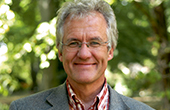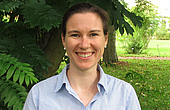Key Ecosystems of Central Germany (Field Course)
Date
tba
Location
Harz Mountains (Germany), Accommodation in hostels in Torfhaus/Bad Frankenhausen
Credit points
2 CP
Course Language
English
Target Group
Doctoral Researchers
Contents
This comprehensive field course will provide an introduction to key ecosystems and vegetation types of Central Germany, ranging from grasslands to forests, from drylands to wetlands and from low to high elevation ecosystems. The course will cover different aspects in vegetation ecology, ecophysiology, ecosystem ecology, restoration ecology and nature conservation.
Planned excursions:
- Heavy metal vegetation
- Montane meadows
- Wet meadows in the Warme Bode valley
- Mount Brocken
- Ravine and canyon forests in the Bode Valley
- Dry grasslands of the Kyffhäuser
- Wetland Esperstedter Ried
- Beech forests in the Ohm hills
Goal
Participants will acquire expert knowledge of key ecosystems and vegetation types of Central Germany. They will learn about natural and anthropogenic factors leading to certain vegetation types and plant species distribution patterns. Participants will also gain insights in nature conservation aspects and ecosystem management practices to protect endangered vegetation types and rare plant species.
Didactic Elements
Field excursions
You will need
General interest in vegetation ecology
Expected performance
Active participation
Lecturer(s) in charge

Prof. Helge Bruelheide
helge.bruelheide@botanik.uni-halle.de
Prof. Dr. Helge Bruelheide (Martin Luther University Halle-Wittenberg, Germany) is Professor of Geobotany and speaker of the International Research Training Group TreeDì on the German side.

Dr. Sylvia Haider
sylvia.haider@botanik.uni-halle.de
Dr. Sylvia Haider is a Research and Teaching Associate at the Department of Geobotany (MLU) with profound expertise in invasion ecology, biodiversity research and trait-based ecology.
